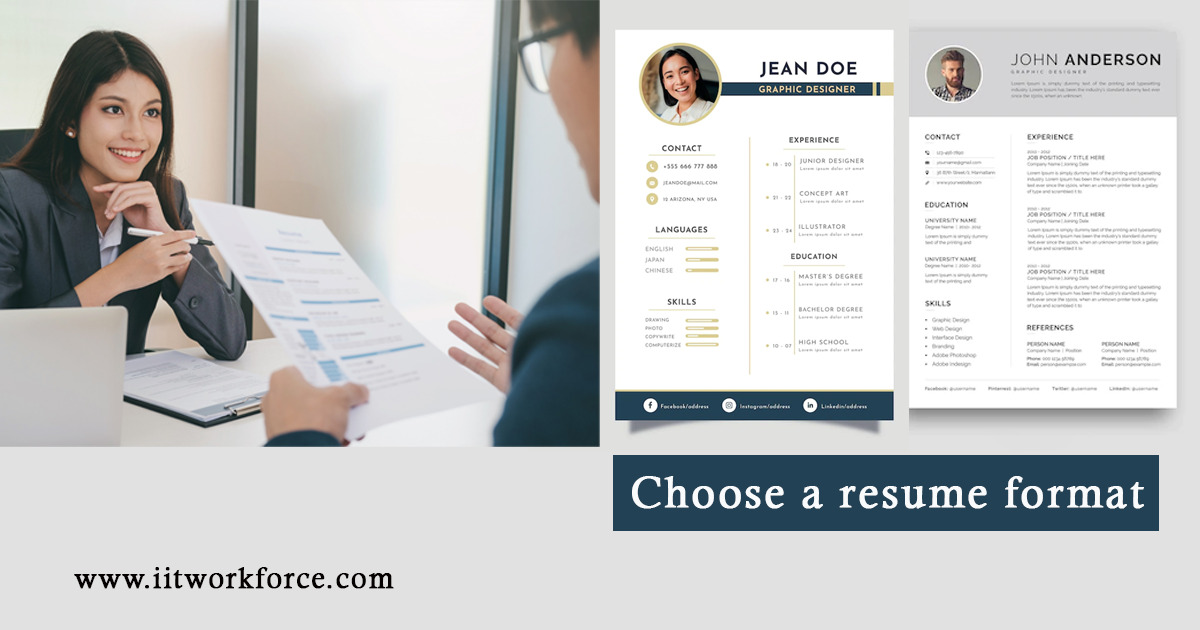Writing a resume without any formal work experience requires highlighting other facets of your life that will highlight your abilities and interests, such as your schooling and participation in extracurricular or volunteer activities. Your resume can be completed by having separate parts for a summary and a list of talents. Here is how to make your resume look good even without having any formal experience.
1. Add a summary statement.
The practice of including specific professional goals in a resume objective statement has mostly become obsolete. This is mostly due to the fact that you want to concentrate on what you can provide for the employer rather than what they can provide for you. Contrarily, a resume summary statement provides a one- or two-sentence summary of your professional background at the top of the page, acting as a hook to persuade the hiring manager to continue reading.
2. Choose a resume format.
Currently, the three most popular resume formats are chronological, functional, and hybrid format (which combines the other two). The job history of a candidate is listed in reverse chronological order on a chronological resume.
Instead of emphasizing work experience, a functional resume format emphasizes the candidate’s achievements in both the hard and soft skills categories. While job seekers with minimal relevant experience may find the functional resume format appealing, the majority of prospective employers and hiring managers like a chronological or hybrid resume structure. Regardless of the structure you choose, make sure it is maintained throughout the entire job resume.
3. Pay attention to the technical details.
Make sure there are no punctuation, grammar, spelling, or other issues while updating your resume as these will make it appear unprofessional. Then, have a friend or member of your family read it again to look for any errors you may have overlooked. As a candidate with no past work experience, you cannot afford to have a typo or missing word. To keep your reader interested, be sure to use action verbs frequently and to change your terminology throughout your resume.
4. Review your accomplishments and current activities.
Make a note of everything you have done that might be mentioned on your resume. You’ll then need to choose what information to include in your resume specifically from this list. Keep a complete list and select the items that are most pertinent from it to include on your resume when you send it out because different things may apply to different jobs you apply for.
5. Focus on your education and skills.
It is preferable to enlarge and concentrate on the education portion of your resume rather than the work experience section to highlight your transferable skills. What does this job need that you are good at? What will the hiring business find useful? What coursework and courses have you taken that have equipped you for this position? Even high school graduates can discuss their electives and pertinent coursework, why they chose to take them, and what they learned from the class. This is usually a little easier if you have a college degree and specialized training.
6. Internships.
Finding paid and unpaid internships in colleges is one of your strongest defenses against “experience required.” They not only give you some practical work experience, but they also give you the chance to network and build relationships that may later lead to employment. Make it vital to highlight any internships you have taken when applying for a job without experience.
7. Mention any extracurricular or volunteer activities.
Most companies, according to a poll, state that they weigh volunteer experience such as working in a soup kitchen alongside paid work experience when making hiring decisions. Therefore, you should include any volunteer job that showcases your skills or where you picked up a new one on your well-prepared resume. Only add extracurricular activities and hobbies if they are related to the position and have equipped you with transferable skills that would be useful for the job role.
8. Use Keywords.
The majority of businesses scan and sort resumes using some type of Applicant Tracking System (ATS). Even though it may appear unfair, this is the way hiring works in the present era. When applying for any job, you should make a list of keywords to use in your resume as a defense against this. The job ad itself or similar job adverts are the ideal places to look for these keywords. A good warning is to avoid using obnoxious, meaningless “buzzwords” like “detail-oriented,” “team player,” and “Live projects.” Unfortunately, there are situations when these buzzwords are the only ones included in the keyword list. If so, you’ll need to slip them in between your specific accomplishments and academic successes.
9. Add a cover letter.
It’s generally a good idea to submit a brief cover letter with your resume even if it’s not needed. Your personality will shine through in your cover letter, so use it to argue why you’re the best person for the job. Even if your CV with no experience lacks certain qualifications, a strong cover letter can persuade an employer to invite you in for an interview.
10. Make sure your resume is tailored to each position you apply for.
This is the most crucial tip to keep in mind when making a good resume. Different job postings are going to have different keywords, different job duties listed, and so on. Appealing to each employer’s needs and job requirements is the best method for getting your application noticed and hopefully landing your first job.
Conclusion
In conclusion, the resume that gets you the job is the only ideal one; there is no secret recipe for writing a winning resume. Even when you are content in your job, be prepared to modify and update your resume. If you lack any work experience, use a hybrid resume structure and emphasize your relevant education and skills. You will eventually get that job and accumulate that highly desired relevant experience.


